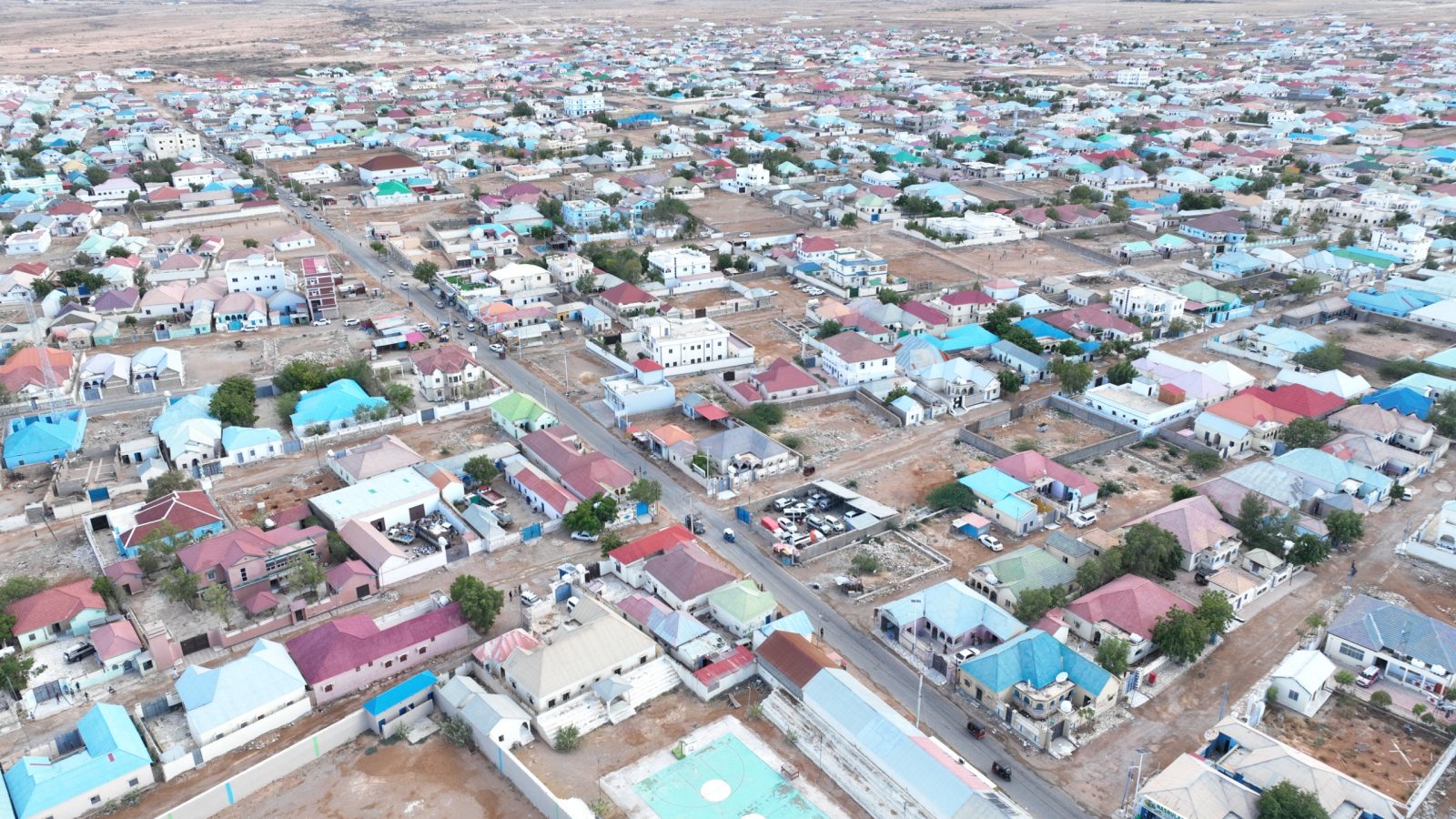Enforcing compliance plays a pivotal role in property taxation. Enforcement involves compelling taxpayers to fulfill their tax obligations through a combination of strategies, administrative tools, and legal measures. However, in many lower-income countries, enforcing tax payments remains a key challenge hindering revenue collection efforts. This challenge is even more pronounced in conflict-affected local governments like that of Garowe in Somalia.
Garowe is the capital of the Puntland, a federal member state located in the north-eastern part of Somalia. The city is estimated to have a population of 190,000 residents and 30,000 housing properties. Garowe has embarked on the collection of taxes on properties to increase revenue and provide services to the public. To achieve this objective, the city has undergone a transformative process that has allowed the tax collection team to minimize the use of coercive and punitive measures, and to embrace conciliatory mechanisms of enforcement.
Tax Enforcement Methods in Garowe
The city administration of Garowe relies on both punitive and conciliatory methods to enforce property tax collection. Before 2020, punitive methods like removing gates on properties whose owners had defaulted and brutal arrests were employed to ensure that taxpayers complied. This approach resulted in the destruction of property and abuse of taxpayers, thereby creating dissatisfaction among taxpayers.
Furthermore, the available evidence suggests that these methods were not effective. For example, in 2015, the local government was able to collect property tax from only 15 per cent of the registered properties.
As a response, the city’s administration has embraced the use of conciliatory methods to boost property tax revenues. This strategy is complemented by the retention of specific punitive measures, coupled with improved revenue collection capabilities.
Since 2020, Garowe has resorted to using friendly approaches like cooperation, persuasion, and negotiations between taxpayers and tax collectors.
By sensitizing and educating taxpayers on the importance of tax payment, issuing reminders, and providing better services like street lighting, road tarmacking, and security, property taxpayers’ knowledge of the benefits of property taxes has been enhanced. In turn, this has resulted in increased voluntary compliance.
The tax team regularly sends taxpayers information via mobile text messages and emails to update them on their tax notices, payment receipts, and any other relevant messages.
Despite embracing conciliatory means to enforce payments, the absence of by-laws and clear policy on property taxation has required the tax collection team to adopt measures that can still be considered punitive. Although practices like gate removal have stopped, the arrest of tax defaulters is still a common practice in Garowe.
The mobile team moves around with the police or military to arrest the defaulters and issue fines. The main challenge with this method is that the enforcement team could arrest whoever is found in the house. This can result in the wrongful arrest of tenants who are not responsible for paying taxes.
Alongside punitive and conciliatory enforcement methods, the city of Garowe has improved its collection capabilities through two further avenues.
Firstly, the local government relies on information technology with the adoption of the Integrated Financial Management Information System (IFMIS). Under this system, all registered properties are assigned a unique registration number that enables the authorities to easily identify the property. The system also helps in billing and generating tax notices for the property owners. The IFMIS is complemented by the use of a Geographical Information System (GIS) to identify new structures.
The digitalization of property tax collection has increased the enforcement team’s capacity to easily locate tax defaulters and take necessary action. When property owners pay their taxes through mobile money transfer, the system approves the payment. Once the money is received, the property for which the payment is made is highlighted with a green colour.
Properties with outstanding taxes remain flagged in red within the system until payments are made. This makes payment follow-ups easier, especially during enforcement.
Secondly, the city persistently distributes tax notices via door-to-door services, recognizing that a significant portion of residents prefer this method over electronic means such as email or text for receiving and settling their tax notices.
The door-to-door approach is complementary to SMS mobile texts sent to taxpayers to enable payments through electronic mobile money.
Despite Notable Progress, Certain Enforcement Challenges Remain
- The absence of clear tax enforcement policies and guidelines creates challenges for taxpayers, as this allows the enforcement team to employ arbitrary methods to ensure compliance. These arbitrary practices cause uncertainty and inconsistency in enforcement measures.
- Furthermore, the responsibility for tax payment between the property owner and tenants remains ambiguous. In several cases, tenants are wrongly apprehended and compelled to settle tax bills when property owners default, leading to unfair enforcement actions.
- Difficulties in identifying taxpayers persist as some properties remain unoccupied because they are owned by individuals residing abroad. These properties are included in the property roll, but it is difficult to serve them the bills and collect payments.
The perception of unfairness often arises with enforcement, particularly when it targets low-value property owners or those lacking political connections. Anecdotal evidence affirms that Garowe is home for returnees from Europe and North America, alongside politicians who own high-value properties. However, these influential groups often resist tax obligations. This sets a negative precedent that could encourage defaults among other taxpayers.
- Despite several efforts, there is an inadequate number of tax collectors. The city has only 15 tax collectors responsible for over 20,000 properties. Some collectors also have low morale and are prone to corruption and collusion in revenue collection due to poor remuneration.
- The tax enforcement team faces logistical challenges due to inadequate resources. The team lacks proper means of transport to navigate and access various areas within the city for enforcement purposes. In addition, the mobile team lacks precise identification mechanisms, such as badges displaying their names and the city’s official identifiers. This can result in challenges in distinguishing them from potential scammers. Given that Garowe is located in a conflict-affected zone where many people have unregulated guns and military uniforms, it can be easy for an individual to impersonate the tax collection team for personal gain. This further emphasizes the importance of having city-related identifiers.
Conclusion and Way Forward
Property taxes can be a major source of revenues for Garowe City, if well-harnessed. While enforcement methods are known to be effective in raising more revenue, systemic changes can further enhance this effectiveness.
This hinges on reforms in the overall administration process and taxation policies. Additionally, the limited awareness among many residents regarding the significance of property tax payments underlines the necessity for comprehensive sensitization and education strategies.
Overall, for Garowe to benefit from property tax revenues, the city needs to address the policy, resource, and administrative deficiencies.
Acknowledgement: With thanks to Dr. Colette Nyirakamana for supporting in writing this piece.
This is the third installment in a three-part series exploring the complexities of property taxation in Garowe, Puntland, Somalia. You can read the first part here, and the second part here.
Photo credit to Sharmake Abdullahi Mohamed, used with permission.





